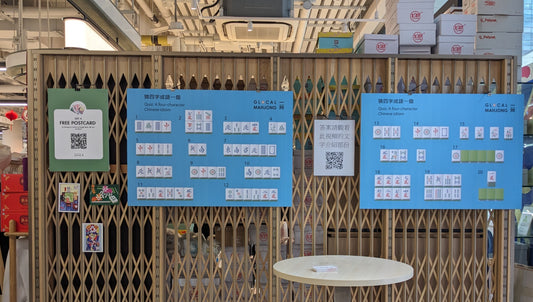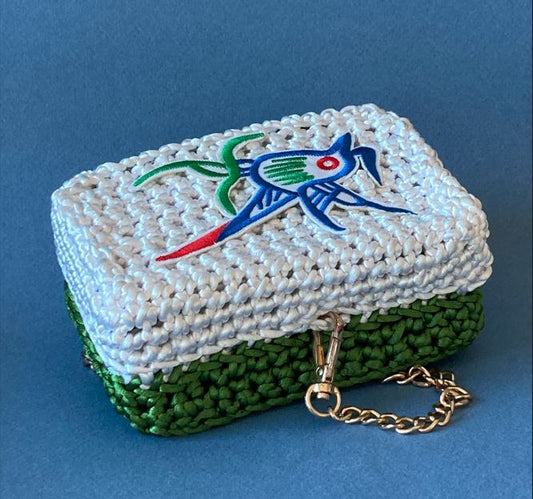Mahjong X Festival
When we see all the moon cake ads around, we know the Mid-Autumn Festival is coming up. More, in the coming August, not sure whether it is the first in the world, Hong Kong is going to have its first ever Mahjong Festival, which triggers me to do this episode.
Mahjong, as a social game, is ideal for the Chinese New Year. The crack of shuffling mahjong tiles resembles very much the sound of traditional firecrackers which expels the bad things in the past year and brings new luck. Apart from formal holidays, in Hong Kong, when people have an unexpected day off from typhoons, mahjong provides people with a great pastime without feeling stuck at home.
Festivals are about recurring celebrations and entertainment on specific dates and places for some seasonal, historical or cultural reasons. Fitting perfectly our brand name, many famous festivals are pretty glocal. The same festival is celebrated worldwide but with different traditions, rituals and food in different places.
Throughout the world, many festivals are associated with seasons as the solar clock and weather are core to farming activities and good harvest are so fundamental to people’s well-being. The arrival of spring which is marked by the beginning of the Lunar New Year and the harvest time at the fall of a year is celebrated worldwide with family gatherings like the thanksgiving in the west or the Winter Solstice in East.
The famous Carnival in Brazil, Marti Gras in New Orleans and Venice have their distant origin related to the beginning of spring started from ancient Egypt. It was later adopted by the Greek and spread to the West as a spectacular festival, and today carnival become a word we loosely used for large festive celebrations and events. The word actually comes from two Latin words, Carne meaning meat and Vale meaning farewell to mark a feast and fancy dress party before the stopping of meals as the Fast of Lent in the Christian calendar.
Apart from the seasonal feasts of Carnival, there are festivals related to other food and drinks. On food, examples include the the National Peanut Festival in the US and the Galway International Oyster Festival in Ireland and the Ramen Festival in Japan. On drinks, there are the famous October month of beer celebrated in Munich of Germany as Oktoberfest, the red wine festival in Beaujolais of France as Beaujolais nouveau in November and or the rice wine Sake in Hiroshima of Japan in October, all associated with the harvest time.
Other festivals are centering on religions and historical moments to commemorate military victories or nation-building. These festivals are enriched with stories of the saints and heroes, and legends of the god and goddess and the dead, ghosts and devils, like Christmas with the birth of Jesus, Halloween in the west or Yu Lang Festival 盂蘭勝會 in lunar July in the east. Often there are rituals that remind people of the treasured value and behaviours in the family or the community. They also take the chance to pay respect to the dead like the Double Ninth Festival 重陽、Ching Ming Festival in the east, the Day of the Dead in November in Mexico, and make wishes through offerings and sharing for the future like the world-famous Cheung Chau Bun Festival太平清醮 and the Sky Lantern Festival in Pingxi of Taiwan, or rethink the past like the Hindu Piercing Festival, Thaipusam, at which sin is relieved through suffering.
Before the advent of mass-produced entertainment, festivals are important sources of fun and amusement. Some festivals have turned very weird and bizarre so that people can be freed from their routine daily life and go totally wild and crazy. Often games and championships are run through fights with strangest things like playing with colour powder in India as the Festival Of Holi, with mud in Korea as Boryeong Mud Festival, with water in the Songkran Festival in Thailand , even with food like tomatoes as La Tomatina in Spain and oranges as the Battle Of The Oranges in Italy.
Other festivals could be very intellectual and cultural like science festivals, literary festivals and music festivals like various jazz and rock festivals or even military band music in Royal Edinburgh Military Tattoo. Major film festivals are also held in Berlin, Venice and Cannes. In other festivals, people showcase their creativity and skills by making giant sculptures and installations like the ice sculptures in Harbin Ice Festival in China and in Sapporo Snow Festival in Japan, the weird Hair Freezing Contest in Yukon of Canada, the Sand Sculpture Festival in Portugal which spreads worldwide, and the wood and straw sculptures to be burnt in the desert in the US as the Burning Man Festival.
Collectively, cultural events may be turned into very large scale art festivals held at longer interval such as the every two years Venice Biennale or Documenta in Germany held every five years with one in 2022.
Hong Kong has an important role in the history of mahjong as being a place that keeps and spreads the heritage while it was banned in China. Hong Kong as the meeting place of East and West also fit very well the glocal nature of mahjong.
In the coming mahjong festivals, a wide variety of activities will be included as Mahjong championship, games of giant mahjong, mahjong art show and talks, and demonstrations of mahjong craft.
We hope this coming mahjong festival is only the beginning and it will become the Glocal Mahjong Festival which is famous globally and celebrated locally in Hong Kong ways.



